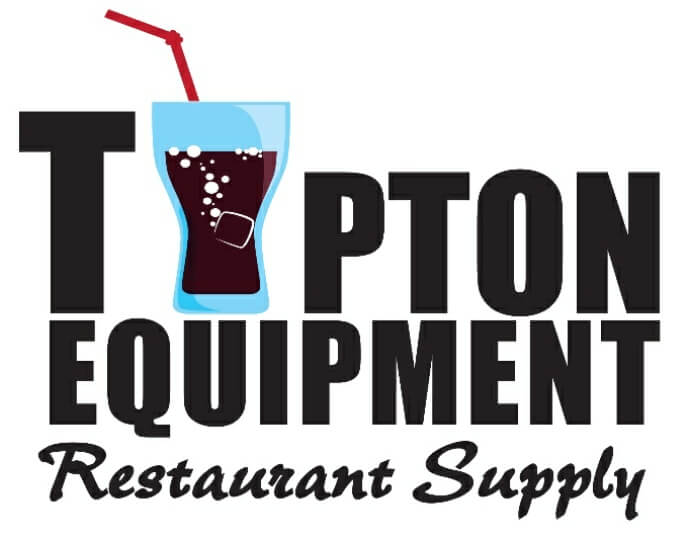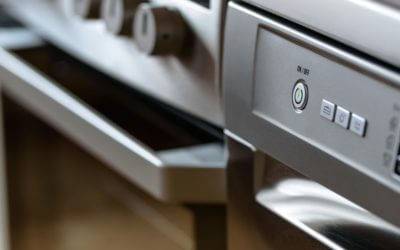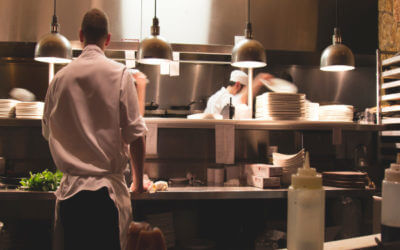Kitchen Equipment Spotlight: How Clean is Your Coffee Pot?
February 21, 2019If you were going to rank kitchen equipment based on how much work it does, the humble coffee pot has to be near the top. In almost every restaurant, people order coffee with their meal or dessert.
The problem is that because the coffee pot is working so hard, it doesn’t always get the cleaning and maintenance it deserves. This is really bad news – not just because a dirty pot makes bad coffee, but because it can make people sick and cost you a big part of your bottom line.
Maintain your reputation as the best restaurant with the best coffee in town – keep your pot clean using these tips!
Clean the Coffee Reservoir
In a 2011 study the coffee reservoir of a pot is one of the germiest places in a home. Is it the same in your restaurant? If you don’t clean the reservoir regularly, the answer is yes!
A simple rinse-out isn’t enough. In fact, more warm water might make the problem worse. Keep water filters up to date and run a half water, half vinegar cycle through the machine. This will help clean the reservoir and other hard-to-reach parts of the machine. Run it again with just water to clear any residual vinegar from the system.
Daily Cleaning Routine
For daily cleaning, you can often just wipe off the outside of the machine and run removable components through the dishwasher. Clean the pots and filter basket. You can also clean thermal servers and airpots with a sponge or brush and mild detergent.
You don’t want to immerse the thermal or airpots in water, so be careful when cleaning them.
This daily strategy will keep your vital kitchen equipment clean and functional throughout the week.
Once a Week
Every week you’ll need to do a deeper clean to keep your coffee pot in working order. You’ll want to clear off mineral deposits on the sprayhead before they build up. Generally this is easy to do because the sprayhead is removable, but check the manual to be sure.
If you have a specialty machine like an espresso machine or bean-to-cup coffee maker as part of your restaurant equipment, you may need to take additional steps. Check the manufacturer’s information for details so you don’t miss anything.
Monthly or Quarterly
Depending on your coffee machine and how much use it gets, you’ll need to descale the coffee machine every one to three months.
Part of the consideration is the type of water you use in this vital kitchen equipment. If you use soft water, you may be able to wait longer, but if you have hard water, you may need to descale more often. Avoid reverse osmosis water, since it affects the taste of coffee and may cause an automatic machine to malfunction.
To descale, you can use the half water, half vinegar mixture mentioned earlier, or you can use citric acid or a commercial cleaner. If you have an automatic brewer, keep in mind this solution will need to be flushed out thoroughly before the coffee machine can return to service.
Need a New Coffee Maker? Get the Kitchen Equipment You Need Today.
If your coffee maker is on its last legs, don’t worry. We can help you get exactly what you need. We have been supplying kitchen equipment to Little Rock restaurants for many years.
Whether you want new or high-quality used equipment, we are here to serve you. Contact us for more information and get a quote today.
5 Things Every Restaurant Owner Should Do Before Buying Used Kitchen Equipment
Equipping your restaurant properly can cost a lot of money, so buying used kitchen equipment is the go-to choice for many restaurateurs. Buying used kitchen equipment for a restaurant is a bit different than buying used equipment for your home, however. You will...
Top Restaurant Technology Trends in 2018
When looking to buy restaurant supplies, you want to be on the leading edge of technology trends. This will keep your kitchen running smoothly. Let’s take a look at some of the most recent trends in restaurant supplies technology. 1. New Payment Options Who would...
5 Different Ice Shapes and Why You Should Care About Them
Ice makers are very popular in the restaurant and foodservice community because they eliminate the need to buy ice every day. And of course, adding an ice maker to your collection of foodservice equipment means you will always have ice on hand when you need it. An...
Pulping and Grinding: A Starter’s Guide to Reducing Commercial Food Waste Costs
For most restaurant owners and managers, the expenses involved in making meals are always under careful consideration. Water is needed to prepare, cook and wash food; power is necessary for food prep, cooking and cooling, and so on. However, how many of us consider...
Choosing the Right Milk Cooler: Cold Wall or Forced Air?
In a restaurant, milk is an essential to have on hand for coffee and other café-style beverages, for serving with kids’ meals, and as a key ingredient in many recipes. Keeping your milk properly chilled can be difficult without the proper restaurant equipment....
How to Choose Your Next Commercial Meat Smoker
The movies that connect with us on a personal level are the ones that linger in our memories forever. Anyone who has used a commercial meat smoker knows that they have a huge influence on the taste of a meal. You need to have just the right kitchen equipment to get a...
Are High Speed Ovens Too Good to be True?
You might have heard a few of the bold claims that foodservice equipment manufacturers have been making about high speed ovens, but they can’t be possible, right? Cooking three times as faster as regular ovens? Five times as fast? Fifteen times as fast? It may seem...
Choosing the Right Food Storage Containers for Your Restaurant
Choosing the right kitchen supplies will make a difference in your restaurant. Whether it is heavy duty kitchen equipment or food storage containers, each piece of equipment plays its own important role. Today, we are going to talk about how to choose the right food...
Tipton’s Guide to Perfect Poultry Trussing
Do you ever truss birds in your commercial kitchen? Trussing is a fantastic cooking technique because it makes poultry cook faster, look more attractive and taste better. If your commercial kitchen prepares poultry, you don’t want to miss these trussing tips. Trussing...
How to Eliminate Excess Condensation in Your Kitchen
Is your commercial kitchen getting steamy? If so, you could have more than just an uncomfortable working environment on your hands. Excess moisture in your commercial kitchen can result in the corrosion of equipment, the development of mold, and even damage to your...
The DIY Guide to Your Restaurant’s Own Garden
Stocking your restaurant supply with your own home-grown herbs and produce can truly bring your dishes to life. When it comes to food, everyone knows there’s nothing like homemade and home-grown. Having your own culinary garden, however large or small, can help you...
5 Reasons a Meat Grinder Will Set Your Burgers Apart
The more you do to prepare your foods in-house with the right kitchen equipment, the fresher and more flavorful your dishes become. There are all sorts of restaurants offering fast-food style burgers, but some diners are looking for the real deal. A fresh, juicy...
Pest Preventions to Implement in Your Commercial Kitchen
Restaurant pests: it’s something that few people want to think about. Like it or not, pest management is an essential consideration for every commercial kitchen. Offering food, shelter and water, the unprepared commercial kitchen naturally provides everything pests...
Choosing the Right Material for Your Cooking Equipment
Kitchens are very unique to their chef. Just like a car mechanic has a toolbox unique to them, so is the cooking equipment in a kitchen. And over time, the same cooking equipment become a natural extension of the chef. What tools are you using in your kitchen? It...
Kitchen Hacks for Your Home
Some people are naturally good at certain skills. We all know someone who is naturally book smart, athletic, or musically inclined. What makes you jealous of them is how easy they make tasks seem compared to you. One skill might be cooking. Your dream may not be...















